(late-July 2023)
(Watch the prelude.)
My Frau’s green thumb continues unabated and local greenhouses are, um, rolling in the green, you could say. After a recent storm, she took these lovely pictures of some of her flowers. Those fancy (and expensive) iPhones sure do take nice pictures.
********
A couple years back or so, I encountered Shermann Thomas, a.k.a. “Dilla”, a.k.a. the Chicago TikTok Historian, online somewhere. Probably Twitter. A ComEd employee by day, he makes short videos about Chicago history at night for TikTok and he’s become something of an internet sensation. He has also managed to parlay his online success into a real life tour business called Chicago Mahogany Tours which schleps folks around various south side neighborhoods as Dilla gives some history lessons.
Having listened to the Bronzeville audio drama recently and wanting to take one of Dilla’s tours, I combined the two and I registered my mother and I for a tour of Bronzeville.
The tour bus leaves from the DuSable Museum of African American History so we braved the construction on the Kennedy and drove down there. I don’t think I’d ever been to the DuSable before and was delighted to find it nestled inside the lovely Washington Park. With the sun shining and nary a drop of rain to be had for miles, it was the perfect day to be out and learning about one of Chicago's legendary neighborhoods.
I noticed that the museum was a mere hop, skip, and jump away from Stagg Field where Enrico Fermi and his pals generated the first artificial nuclear chain reaction as part of the Manhattan Project. This reminded me that I had tickets to see Oppenheimer on an IMAX screen and on film, no less, in just a week's time or so.
Other people showed up and began to wander around expectantly - these were our fellow tourists. Eventually the bus appeared across the street. At one point, I turned and saw that Dilla was walking over to us to offer greetings. It’s always weird for me seeing someone that I only know from the internet in real life. How do they compare to the image on my screen? Dilla was taller – I suspect he’s about 6’4”.
Soon we boarded the bus and were off.
The tour began with our guide announcing that our first destination was just outside of Bronzeville. President Biden had recently announced that he was designating a new national monument for Emmett Till and his mother Mamie Till-Mobley and so we drove by their home on S. St. Lawrence Avenue.
Dilla gave some background on Till’s horrible fate and how his mother’s decision to allow his battered and broken body to be seen publicly helped light a fire under the civil rights movement. It was quite moving to be sitting before their home. The building was in the process of being restored as it appeared that there were some masons working on one of the exterior walls.
From there on out, things came at us fast and furious. It seemed like there was a building of historic significance, a mural, etc. everywhere you turned and Dilla enthusiastically told us about them all. Or nearly all.
Although we saw many sites of interest, we usually ended up pulling over on the "wrong" side of the street, i.e. - so that they were not directly outside of our window. D’oh!
Most of the tour showcased Bronzeville’s intriguing history but it also served to put Chicago’s south side on display and demonstrate that, although it has its problems, it is an area of great culture and resilience, not a war zone.
For example, we stopped at Boxville which appears to be the Maxwell Street Market nouveau.
It’s a lot filled with shipping containers that act as makeshift storefronts for aspiring black entrepreneurs who hawk their wares and tempt shoppers with food.
At one point we were driving along and Dilla was talking about jazz making its way to Chicago from New Orleans and he is dropping names the whole time. As if on cue, we stopped in front of this place:
It turned out that Louis Armstrong lived in that middle residence. There’s a trumpet and a French horn in the window. How cool is that, to be at Satchmo’s place?
I first encountered The Green Book about 5 years ago via a very interesting BBC radio documentary. The Green Book was a directory for “Negro motorists and tourists” that was published the last 30 years or so of Jim Crow. It listed hotels, restaurants, etc. that were friendly to black travelers. Our bus stopped in front of 712 E. 44th Street and Dilla told us that the house was listed in The Green Book. Neat! I had never been at a site listed in it in real life before – knowingly, anyway.
And here it is in the 1948 version:
One figure that casts a long shadow over Chicago history, United States history, really, is Ida B. Wells. We got a chance to get off the bus and stretch our feet at a green space at S. Langley Avenue and E. 37th Place where we found a monument dedicated to Wells called "The Light of Truth".
Wells was one bad ass lady. Born into slavery, she would go on to become a journalist who documented the horrors of lynching, an early civil rights leader, a founding member of the NAACP, a black feminist, and more. Quite a woman. We drove by her house on S. Martin Luther King Drive but that photo was out of focus. But you can recognize it by its red turret.
As the tour wound down, we drove by a library and Dilla casually pointed out that Richard Wright wrote Native Son there. Shortly after that at a stop light, he noted a mural of Lorraine Hansberry, who wrote A Raisin in the Sun, on the side of a building on the corner.
Down at street level were scenes from the play.
Hansberry attended my alma mater, the University of Wisconsin-Madison, in the late 1940s. While a student, she became involved with the local chapter of the Communist Party. Also involved with this chapter were my Frau’s grandparents and I believe they hosted Ms. Hansberry at their home occasionally. Often enough, anyway, for her to allow my Frau’s grandmother to do a portrait which is now in our home.
Dilla’s catchphrase is “Everything dope about America comes from Chicago” and, after going on one of his tours, you realize he’s got a good argument for the affirmative. There was just so much really interesting history there in Bronzeville that it was almost overwhelming.
Dilla barely had enough time to rattle off, “You see that parking ramp? That used to the site of the Regal Theater. Back in 1968, a Motown talent scout came down to see a show there and saw a band of 5 brothers from Gary, Indiana…” before he announced we were in the blues district. This was where such famous joints as the Checkerboard Lounge hosted the giants of the genre back in the day. Legendary venues I’ve heard of from tales of blues lore used to dot the streets. Blues luminaries such as Muddy Waters, Howlin' Wolf, and Buddy Guy graced their stages. Koko Taylor surely belted out "Wang Dang Doodle" many a time behind some of those walls.
The tour had all sorts of moments like this. Dilla is a witty and charming guide and he made things fun and informative despite the fact that taking it all in was a bit like drinking from a firehose.
Another thing that caught my eye was all of the great architecture. The Loop may get the press, but Bronzeville is home to some really gorgeous buildings. I know that Chicago photographer and architectural critic Lee Bey has tried to bring the great south side building styles to the masses via his book Southern Exposure: The Overlooked Architecture of Chicago’s South Side but it was another thing to see some of it first-hand.
In addition to enlightening us about Bronzeville and Chicago history and demonstrating that the city’s south side is not adequately and quite unfairly summed up as “Chi-raq”, Dilla also pointed out restaurants along the way and I really want to check out Honey 1 BBQ on E. 43rd someday.
********
Bonus photos. What a difference a few months make.
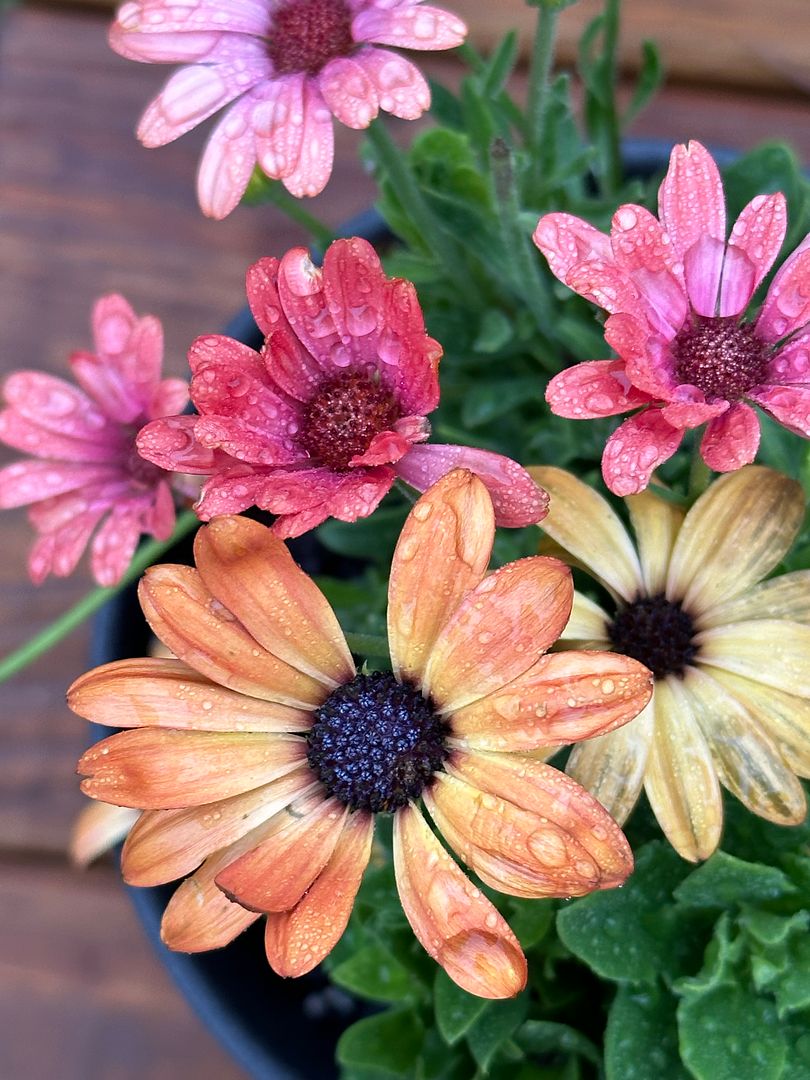

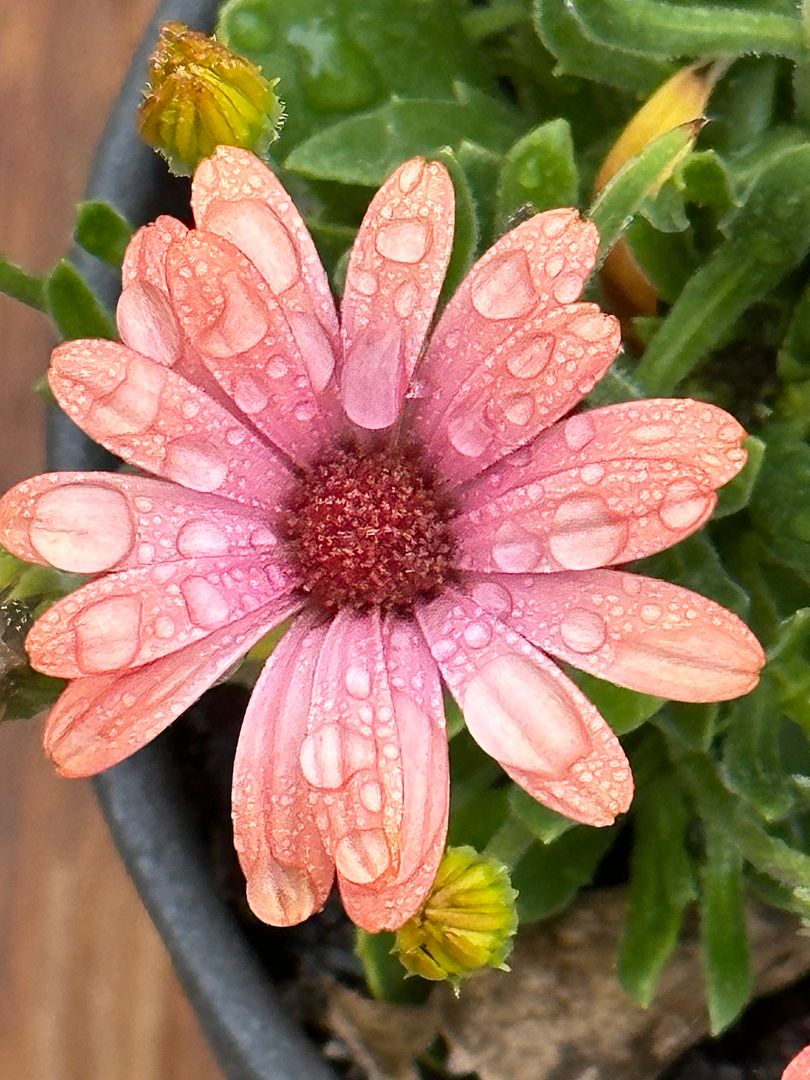
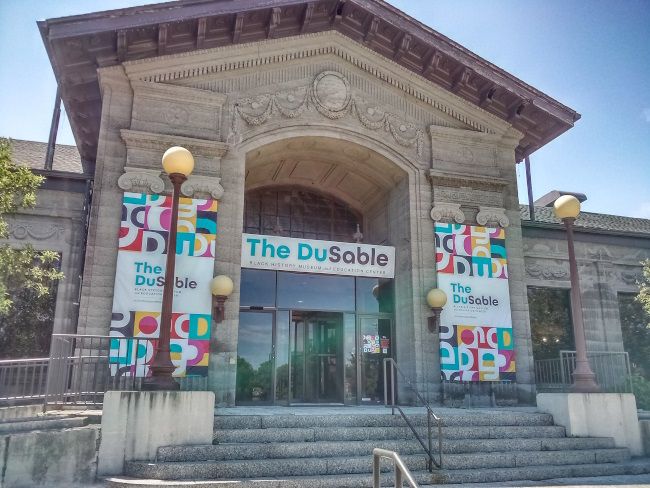

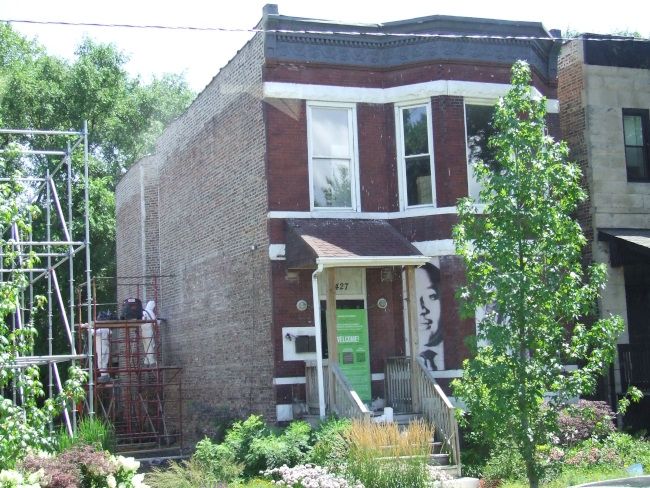
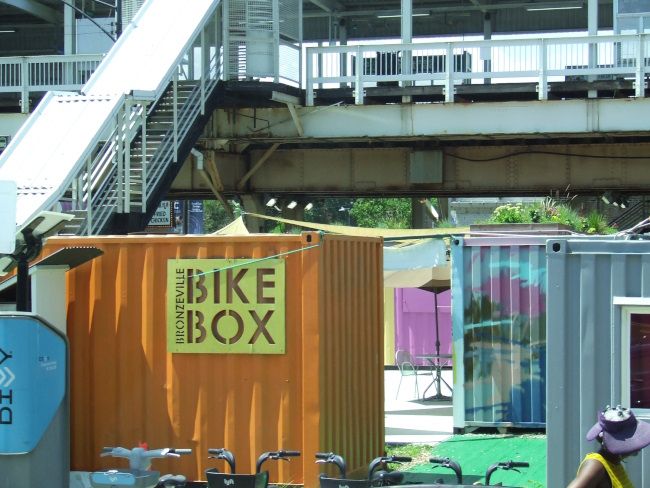
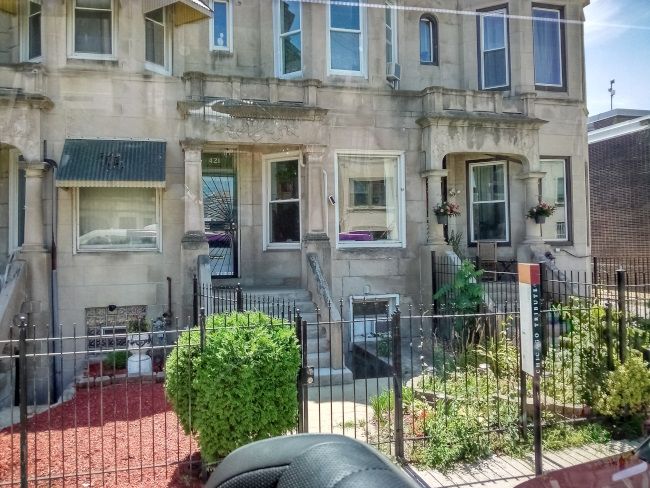
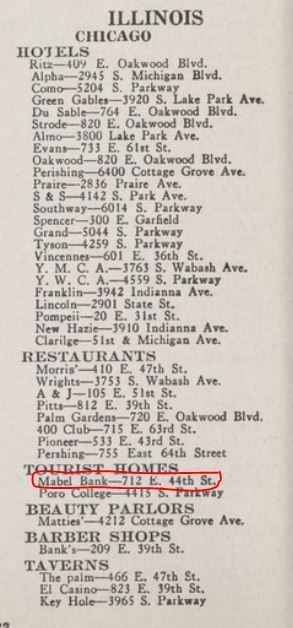
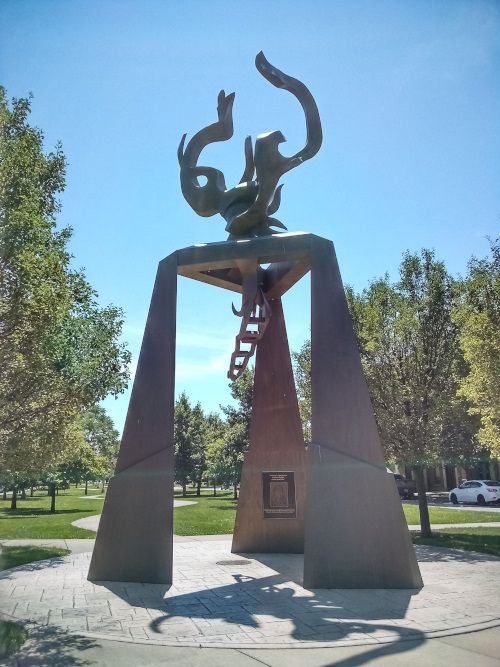
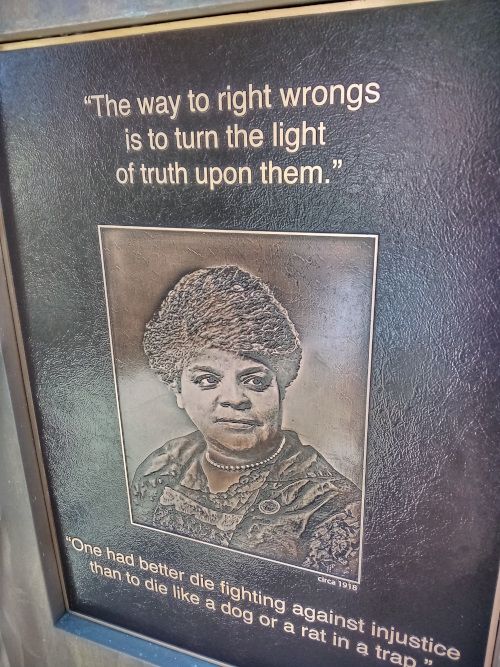
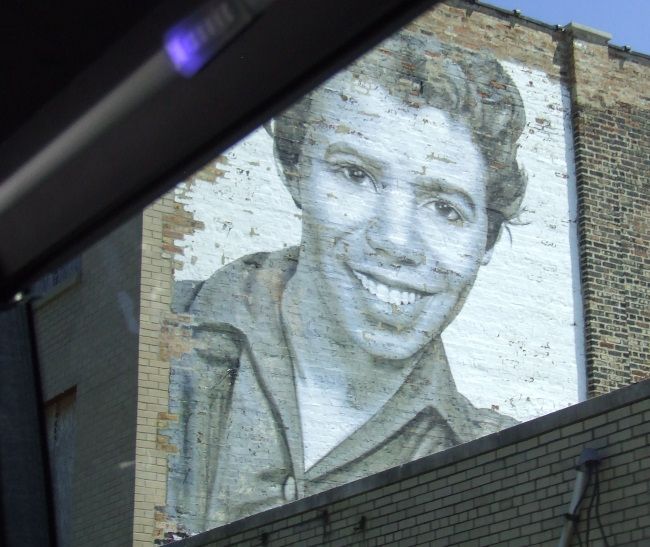
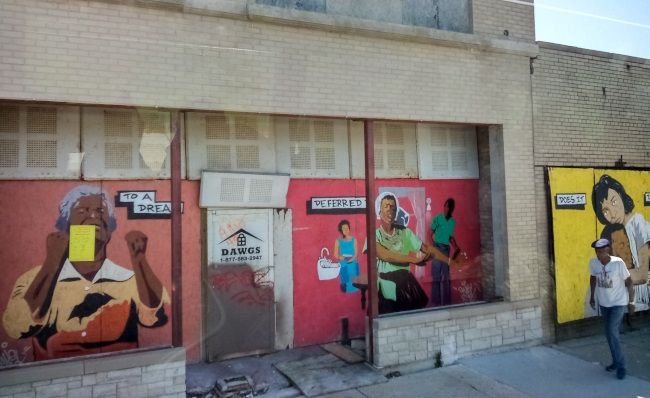
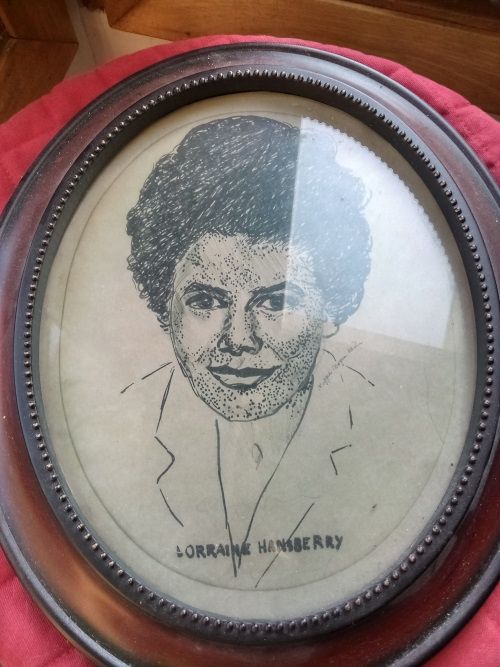
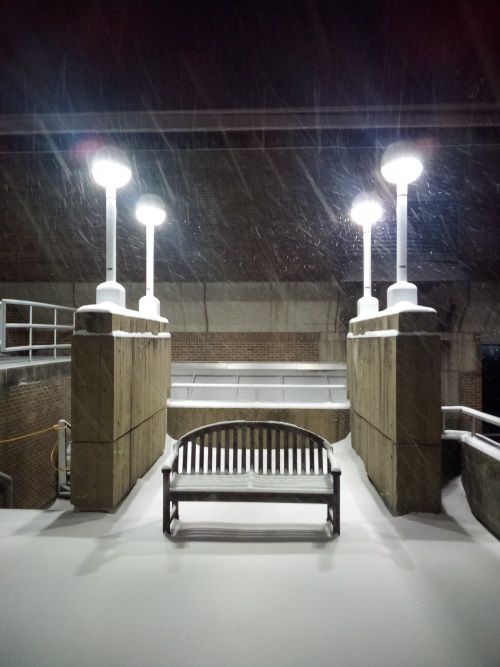
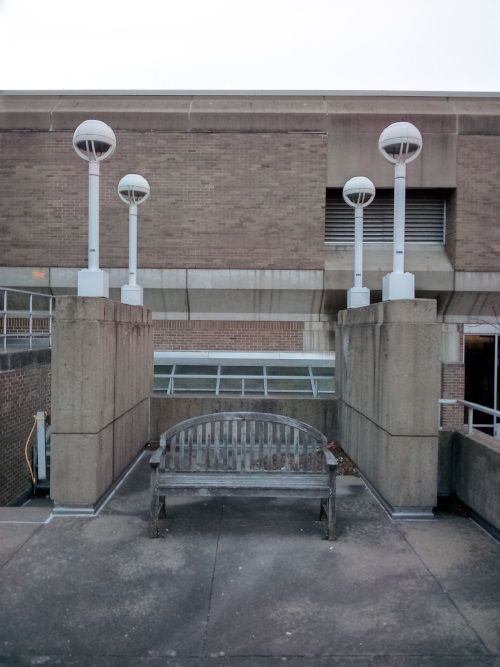
No comments:
Post a Comment